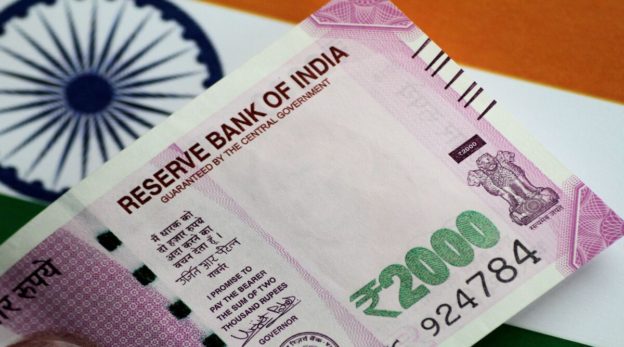Digital rupee is expected to give a boost to India’s economy and will help in promoting blockchain technology ecosystem in the country.
The Reserve Bank of India will introduce digital rupee based on blockchain technology in the upcoming fiscal year 2022-2023, Finance Minister Nirmala Sitharaman announced on Tuesday while presenting the Union Budget. RBI is expected to use blockchain technology in introducing what is popularly called Central bank digital currency (CBDC). “Introduction of a central bank digital currency will give a big boost to the digital economy. Digital currency will also lead to a more efficient and cheaper currency management system. It is therefore proposed to introduce digital rupee using blockchain and other technology by the Reserve Bank of India starting 2022-2023,” Sitharaman said in her speech at the Budget session.
Digital rupee to promote blockchain ecosystem, simplify digital payment systems
Digital rupee is expected to give a boost to India’s economy and will help in promoting blockchain technology ecosystem in the country. “This move will help promote the blockchain ecosystem in the economy. The anomaly over use of unregulated digital currencies appears to have been set to rest with this proposal with the regulation powers given to the RBI,” Sandeep Jhunjhunwala, Partner at Nangia Andersen LLP told Financial Express Online.
ICICI Direct on the other hand said the introduction of digital rupee will promote and facilitate digital payments. This will also reduce printing costs for the Reserve Bank of India and will also be a cost-effective payment system. “Digital rupee to be issued by the RBI is likely to result in reduced printing costs, decreased settlement risks, avoidance of time zone issues, and cost-effective payment system,” Sunil Gidwani, Partner at Nangia Andersen said.
Concerns with private cryptocurrency
Announcement about introduction of a digital currency comes as the central bank has been studying the safety and effectiveness of a digital rupee. In December, T Rabi Sankar, deputy governor of RBI, said it is planning to introduce two variants of CBDC – a wholesale account-based one and a retail one. “Much progress has already been made on the wholesale account-based one, while the retail CBDC is a little more complicated and will take longer. Depending on which is ready first, the RBI will release the digital currencies for a pilot,” Sankar said.
The RBI has however raised issues with the private cryptocurrency, which also runs on blockchain technology, saying it could create financial instability. Commenting on regulation of cryptocurrencies, Sanjeev Sanyal, Principal Economic Adviser said Monday that the government will take a balanced view on regulation of cryptocurrency. “There are some financial stability issues. But there are also other arguments that are made in terms of innovation and so on….obviously a balanced view on this will be taken.”
“The announcement for a Digital Rupee shows the Government of India’s recognition of blockchain technology. While it is not clear what will be the fate of private cryptocurrencies, the RBI-issued Digital Rupee will open a whole new front in currency management. This move is in sync with how other nations, such as China, England, etc. are moving. To be introduced in F22-23, more details are expected on how it will be working,” Amit Agarwal, Partner at Nangia Andersen said.
Advanced economies such as the United States and China have also started working on Central Bank Digital Currency (CBDCs) for faster adoption of the digital currency. Bahamas has already issued its CBDC.
https://www.financialexpress.com/budget/union-budget-2022-digital-rupee-bases-on-blockchain-tech-be-introduced-in-2022-by-rbi-says-fm-sitharaman/2422378/?utm_source=newzmate&utm_medium=email&utm_campaign=febudget&pnespid=FOYq5kRfsSYIzFqX6MqKG0ZLqRA10LlsuxQdFKsBN4rKm4xMIOBgoqUdc4WEwJ14fkZnwZna





